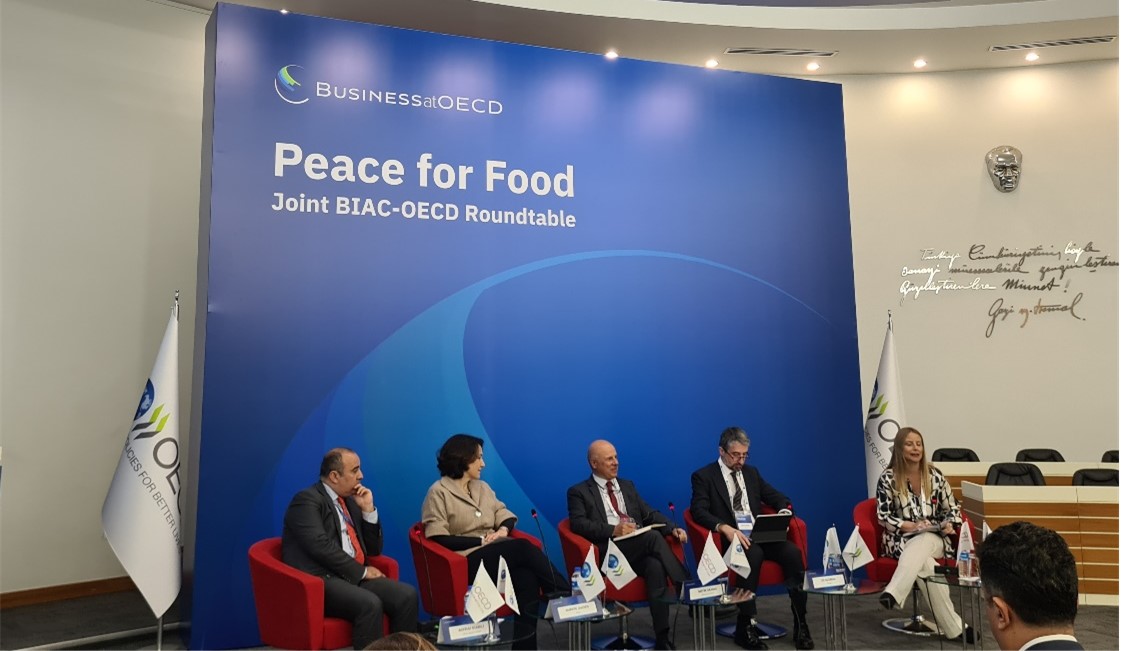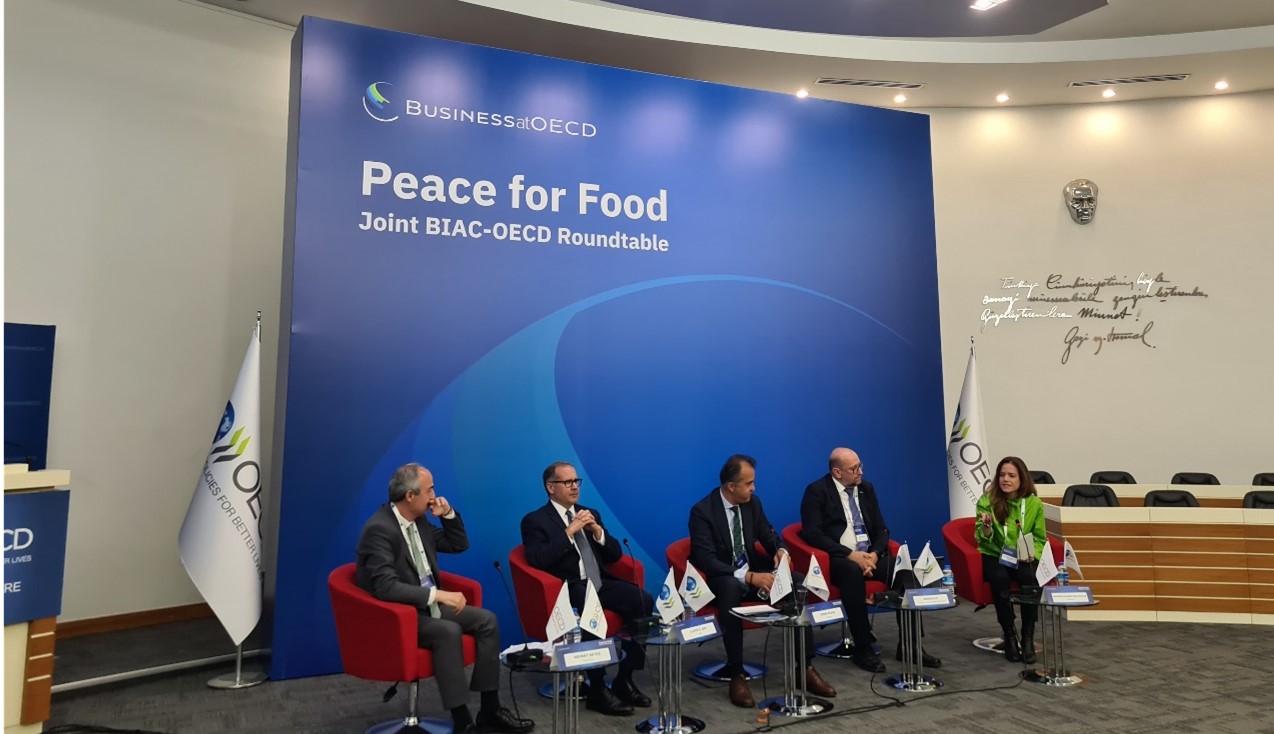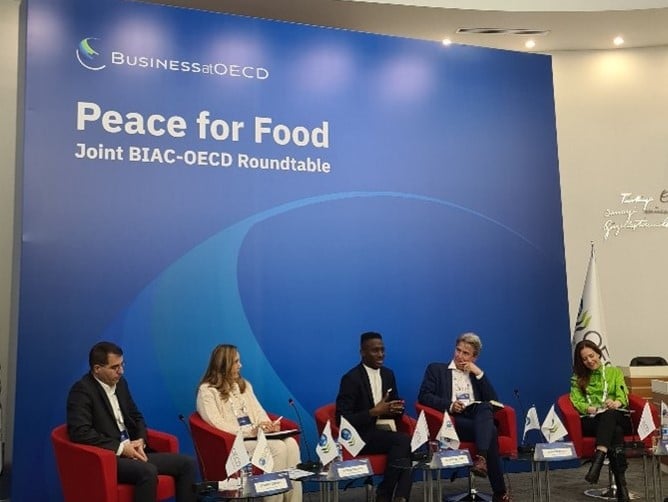About Us
Discover how we advance the business voice at the OECD through a clear institutional mandate, robust governance, and a diverse global network.
About Us
About Us
Discover how we advance the business voice at the OECD through a clear institutional mandate, robust governance, and a diverse global network.
The OECD
The OECD
Explore how the OECD shapes market-based economies through its standards, recommendations and analysis that matter to the private sector.
About the OECD
Explore the OECD’s role and unique features
Why the OECD Matters
Find out how the OECD impacts business
.jpg?width=4554&height=3138&name=2019%20OECD%20Forum%20(1).jpg)
Learn more about the OECD
See morePolicy Areas
Policy Areas
Explore our policy recommendations to the OECD and governments to foster economic growth, sustainable development, and societal prosperity.
Competitiveness and Growth
Competition, Economy, Entrepreneurship, Finance, Governance, Regulation, SMEs,
Emerging Markets
Caribbean, China, Development, Latin America, Southeast Asia
Food, Health, Well-Being
Agriculture, Food, Health, Tourism
Green Growth
Biotechnology, Chemicals, Environment, Energy, Nanotechnology
Innovation and Digital
Consumer Policy, Digital, Innovation, Technology
Open Markets
Export Credits, Illicit Trade, Investment, Trade
Responsible Business
Anti-Corruption, Corporate Governance, Integrity, Responsible Business Conduct
Skills and Employment
Education, Employment, Labour, Private Pensions, Social Affairs
Tax and Fiscal Affairs
Advocacy
Advocacy
Explore how we bring business priorities to the table in our engagement with Governments, the OECD, and the G7, and the G20.
Engagement with Ministers
How we engage with Government Ministers
Consultation with the OECD's Council
How we advise the OECD's Leadership and Ambassadors
Role in the OECD's Bodies
How we contribute to the OECD's Committees and Working Parties
Advice to the G7 and G20
How we support the B7 and B20

Join us in Paris for our high-level roundtable on health and life sciences competitiveness.
Register hereNewsroom
Need to contact our communications department?
For interview and comment requests, send an e-mail to our Communications Manager, Max Jablonowski, jablonowski@biac.org.
On 8 May 2023 as part of our ongoing Peace for Food campaign, we had the honor to bring global stakeholders together in Istanbul, to highlight the current situation in global food markets and discuss key challenges for global food security.
Our campaign aims to proactively contribute to the OECD work on agriculture and highlight the business commitment to reaching global objectives, including agriculture sustainability and innovation. Through the campaign, our Food & Agriculture Committee is working with farm groups and with agribusinesses that operate upstream and downstream in the food supply chain to identify actions that the private sector can take on its own, in partnership with governments and other stakeholders, and in response to specific policy changes.
We were delighted to host this roundtable in Türkiye, a founding member of the OECD as well as a strategic partner at the world’s crossroads. With the involvement of Turkish business, we are one step closer to stimulating true dialogue and supporting better policies that enable the private sector in the region and beyond. The roundtable was the first official meeting held at the OECD Istanbul Centre – an important hub for the Organization to foster regional policy dialogue.

(Left to right: Achraf Bouali of the OECD, Marion Jensen of the OECD, Metin Akman of Business at OECD, Ozan Diren of TÜSIAD, and Gabriela Wurcel of FMC Corporation).
It is a timely moment to address the challenges in food and agriculture, as the current state of global affairs presents a multi-layered crisis in food demand and supply. Unprecedented shocks such as Covid-19 and the Russian invasion of Ukraine have uncovered key weaknesses in our food supply chains, and placed disproportionate burdens on vulnerable populations.
However, even prior to such global shocks, international attention had been focusing on the challenges facing global food systems. The triple challenge of ensuring food security and nutrition for a growing population, enabling livelihoods across the food chain, and sustaining the environment in a context of climate change is yet to be overcome. Over 800 million people are undernourished globally, and a higher number are overweight. The agriculture sector draws heavily on the world’s natural resources, contributing to alarming greenhouse gas (GHG) emissions. Many small farmers face growing pressure on their already low household incomes, and in less developed economies the sector can account for as much as 50% of total employment. The issue has become more urgent to move from discussion to action if global food systems are to feed the world, sustain the environment, and enable livelihoods across the food supply chain.

(Left to right: Mehmet Aktaş of Yaşar Group and TÜSIAD, Lloyd C. Day of the Inter-American Institute for Cooperation on Agriculture, Evren Albaş of Tat Gida, Boban Ilic of the Regional Rural Development Standing Working Group in Southeastern Europe, and Natasha Santos of Bayer AG).
This roundtable served as an excellent environment to discuss what’s next on the agriculture policy agenda, especially following the OECD Agriculture Ministerial Level Meeting which took place in November 2022. Participants from international organizations, academia, OECD and the private sector shared their recommendations for making our food systems more resilient and sustainable in the long term. Participants also exchanged on the most pressing agriculture-related issues, exploring contributions of inclusive business and agriculture productivity in agri-food supply chains, and helped us shape our policy efforts vis-à-vis the OECD agricultural agenda by bringing private sector expertise on its efforts to ensure global food security and sustainable productivity growth.

(Left to right: Gökhan Özertan of Bogazici University, Yvonne Colomer of Triptolemos Foundation, Frank Gbaguidi of Eurasia Group, John W. Crawford FRSE of the University of Glasgow, and Natasha Santos of Bayer AG).
The roundtable feature discussions on 1) sustainable agriculture, 2) agriculture productivity and inclusive business in the agriculture value chain and 3) food security and food price inflation. The roundtable follows a number of Business at OECD’s Peace for Food dialogues held virtually, in Paris and Vilnius, as well as our contributions to the OECD Agriculture Ministerial.
At the meeting, we also launched our next report What’s next for Agriculture: Suggestions for shared action agenda for agribusinesses and governments, which focuses on the practical actions that can be taken to enable more sustainable, productive and resilient food systems, and provides a shared actionable agenda for agribusinesses and governments.